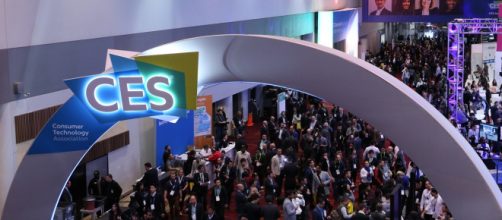Normally, the Consumer Electronics Show (CES) kicks off the start of another new tech year in grand style. The latest gadgets, from large-screen TVs to smartphones packed with new features, were on full display last week in Las Vegas, Nevada as approximately 170,000 attendees jammed exhibit show aisles.
And the consumer tech industry is doing fairly well, at least based on data released last week by the Consumer Technology Association (CTA). Smart speaker shipments, such as Amazon’s Echo, were up 279 percent in the U.S. last year, along with sales of smart home products, TVs, and drones.
Overall, CTA estimates that consumer tech retail revenue will reach $351 billion in 2018, a record high.
But the tech world has issues and the just-concluded week-long show highlighted a number of them. Days before the start of CES, a team of security researchers released findings which showed that virtually all Intel processors shipped after 1995 contained a security flaw called Meltdown. A second flaw – Spectre – affects a number of processors including Intel’s.
Intel CEO addresses security flaws
In his opening CES keynote remarks last Monday, Intel CEO Brian Krzanich addressed the concerns up front, briefly outlining actions the company was taking to address the vulnerabilities. “We have not received any information that these exploits have been used to obtain customer data,” Krzanich reassured the crowd.
But the security news overshadowed many of Intel’s announcements, including the release of a new 49-qubit quantum computing chip.
Things did not go well for two other companies at the show. Last Monday, LG Electronics held a press conference to unveil its commitment to infuse artificial intelligence (AI) technology in all of its devices, through its branded ThinQ platform. But when the company rolled out CLOi, its small, expressive talking home robot, the device shut down after two minutes on stage and refused to interact further with an LG executive. Although the promise of the smart home is rapidly progressing, robotics technology is still a work in progress.
huawei found itself in a different kind of awkward situation on Tuesday when the Chinese company held its own press conference at CES.
Ostensibly scheduled to announce a new partnership with AT&T to sell Huawei’s latest smartphone – the Mate10 – in the U.S., Richard Yu, head of Huawei’s consumer products group, was forced to deliver a much different message after AT&T pulled out of the deal at the last minute.
Reports indicate that AT&T’s decision could have been influenced by a letter sent by U.S. lawmakers to the Federal Communications Commission expressing concern about the potential for Chinese espionage if the deal was allowed to proceed. An obviously seething Yu vented his frustration. “We are serving over 70 million people worldwide,” Yu said. “We’ve proven our quality, we’ve proven our privacy and security protection.”
Federal officials express concerns
The heavy hand of the U.S.
government loomed over this year’s show. CES attendees heard from FCC Commissioners, the acting head of the Federal Trade Commission and the Secretary of Transportation. All of the government officials proclaimed their love of technology and innovation. But attendees also heard a warning from Transportation Secretary Elaine Chao on Wednesday that too many Americans were “uneasy” with the prospect of self-driving cars or having drones flying over their heads.
Meanwhile, three FCC commissioners spoke briefly on Tuesday about the agency’s controversial decision to rollback net neutrality protections, essentially allowing service providers to selectively block or slow data on the Internet. Two of the commissioners who voted for the rollback said little, other than to expect a lengthy process of Congressional debate and court rulings.
But the third commissioner – Mignon Clyburn – was openly critical of the decision, calling it “the destroying of Internet freedom order.”
And the acting chair of the Federal Trade Commission – Maureen Ohlhausen – told CES attendees that her agency was fully prepared to prosecute companies which lost customer data through breaches without providing the proper protections. The FTC recently reached a settlement with Uber over its handling of private data and may reopen its investigation in the wake of another reported breach.
January’s CES event offers an annual opportunity to see what trends in consumer technology can be expected for the months ahead. Between robotic glitches, pulled agreements and concerns that government may not be technology’s BFF, the coming year could be a little more difficult than many expected.


